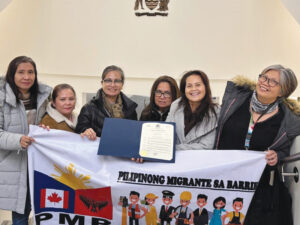The Electric Vehicle Association of the Philippines (EVAP) is calling on all the countries around the world that are serious about reducing greenhouse gases to look at the Philippines, glance at its successful electric vehicle programs and see if they can introduce similar EV programs of their own.
This is amidst the successful adoption of the first universal climate agreement that was reached at the recent 2015 Paris Climate Conference (COP21).
During COP21, it was universally agreed by 195 countries to put the world on track in avoiding dangerous climate change by limiting global warming to below 2 degrees Celsius.
EVAP President Rommel Juan says that the Philippines actively participated in the climate change deliberations in Paris. “Our delegation was composed of our legal, policy and environmental experts as well as scientists who came not just from the government but also from the academe and civil society.”
The Philippine delegation was headed by Secretary Emmanuel de Guzman, the vice chairman of the Climate Change Commission. Our negotiators participated in different tracks – in the Subsidiary Body for Implementation (SBI), Subsidiary Body for Scientific and Technological Advices (SBSTA), the Conference of the Parties serving as a meeting of the parties to the Kyoto Protocol (CMP) and Ad Hoc Working Group on the Durban Platform for Enhanced Action (ADP).
The ADP is the body tasked to shape the new agreement and determine the pathways for emission reductions, adaptation and finance pre-2020, or before the new climate change agreement takes effect in five years’ time.
Malacanañg vowed to carry out the Philippine commitments forged with other countries in the recent COP21 in Paris which are all meant to avert a disastrous spike in global warming.
“The Philippines will fulfill its Intended Nationally Determined Contribution (INDC) committing to reduce greenhouse-gas emissions conditionally by 70 percent by 2030. This is in solidarity with other nations that will provide support in terms of finance, technology and capacity building,” Communications Operations Secretary Herminio B. Coloma Jr. said.
He added that the Paris agreement also addresses the situation of climate-vulnerable countries like the Philippines that “bear the heaviest, albeit a most disproportionate share of the burden of climate change in terms of assuring the conveyance of resources that will fully support adaptation and mitigation efforts.”
Juan believes that for the Philippines to achieve its commitments to the COP21 Agreement, we need to introduce more climate-friendly electric vehicles, particularly electric jeepneys. “Currently, according to CAI -Asia. the regular diesel-fueled Jeepneys comprise only 2% of the total vehicular volume yet they contribute 80% of the air pollution in Metro Manila. Thus we need a viable non-polluting alternative to these”.
“Aside from advocating the replacement of Jeepneys with electric Jeepneys, we also want to introduce more electric tricycles to replace the old polluting two-stroke tricycles which number around 1.2 million units throughout the country”.
“Along this line, we are happy to note that there are now many ETrike Programs in Mandaluyong, Boracay, Naga and Cavite”, Juan adds. “What also pleases us is that the Department of Energy has recently announced the granting of the winning bid for an initial 3,000 ETrikes to local ETrike maker BEMAC Motors”.
“We therefore invite the whole world to look at the Philippines as the up and coming EV hub of Asia, as many programs are being implemented, many manufacturers are setting up and many EV investments are being set in place”, he concludes.
EVAP will have its annual Philippine Electric Vehicle Summit on April 14-15, 2016 and wishes to invite more foreign EV players to participate and possibly forge partnerships with local EV players. (Malaya)








